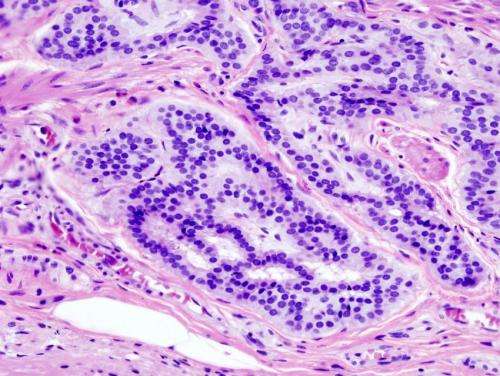Researcher advises doctors against overreliance on liquid biopsy used to screen for colorectal cancer recurrence

Researchers at City of Hope, one of the largest cancer research and treatment organizations in the United States, have data pointing to the limitations of Signatera, a popular liquid biopsy or blood draw test that is used to detect the recurrence of colorectal cancer in patients who have had their disease surgically removed. The study was published today in JAMA Network Open.
"A liquid biopsy measuring circulating tumor DNA is a novel way to test for residual disease in patients who have recently received curative resection for colon cancer. Identifying early disease recurrence is important as it may allow for potential curative interventions," said Marwan Fakih, M.D., co-director of City of Hope's Gastrointestinal Cancer Program and lead author of the new study.
City of Hope researchers evaluated 48 study participants who had had their colorectal cancer resected. The scientists sought to identify which technique might be superior in identifying residual disease and early cancer recurrence by comparing the use of Signatera's circulating tumor DNA (ctDNA) analysis, which is often used to screen for colorectal cancer, to the standard-of-care recommended by the National Comprehensive Cancer Network (NCCN): X-rays via computed tomography (CT) scan and a carcinoembryonic antigen (CEA) test, which measures a tumor marker via a blood draw.
Fifteen patients experienced colorectal cancer recurrence. Within this group, standard-of-care surveillance was better at identifying early disease. For example, Signatera did not identify patients who had early recurrence in the lungs. Three patients received a negative ctDNA test, but standard-of-care surveillance techniques identified disease recurrence in their lungs.
"Imaging remains the most important surveillance assay in the follow-up of resected colorectal cancers. Clinicians should continue to abide by NCCN guidelines. For those who decide to implement ctDNA into their surveillance algorithm, they should be aware of the limitations associated with this assay," Fakih said, referencing current clinical trials elsewhere where clinicians are de-intensifying chemotherapy based on a negative ctDNA test by Signatera.
It may be premature to base treatment decisions solely on ctDNA results "given the limitations of Singatera sensitivity," said Fakih, the Judy & Bernard Briskin Distinguished Director of Clinical Research and a professor in City of Hope's Department of Medical Oncology & Therapeutics Research.
Fakih added that using liquid biopsies to identify disease recurrence is an attractive, noninvasive option. Liquid biopsy is convenient and, unlike CT, does not expose patients to low doses of radiation. However, scientists are still working to develop a reliable and sensitive liquid biopsy to detect colorectal cancer recurrence. Nevertheless, there is promise.
"ctDNA was able to identify several recurrences in the liver and lymph nodes ahead of imaging," Fakih said. "For now, ctDNA can be considered, if any at all, as a complement to the standard approach recommended by the NCCN, but one must be cognizant of its limitations."
More information: Evaluation of comparative surveillance strategies of circulating tumor DNA, imaging and carcinoembryonic antigen levels in patients with resected colorectal cancer, JAMA Network Open (2022). DOI: 10.1001/jamanetworkopen.2022.1093





















